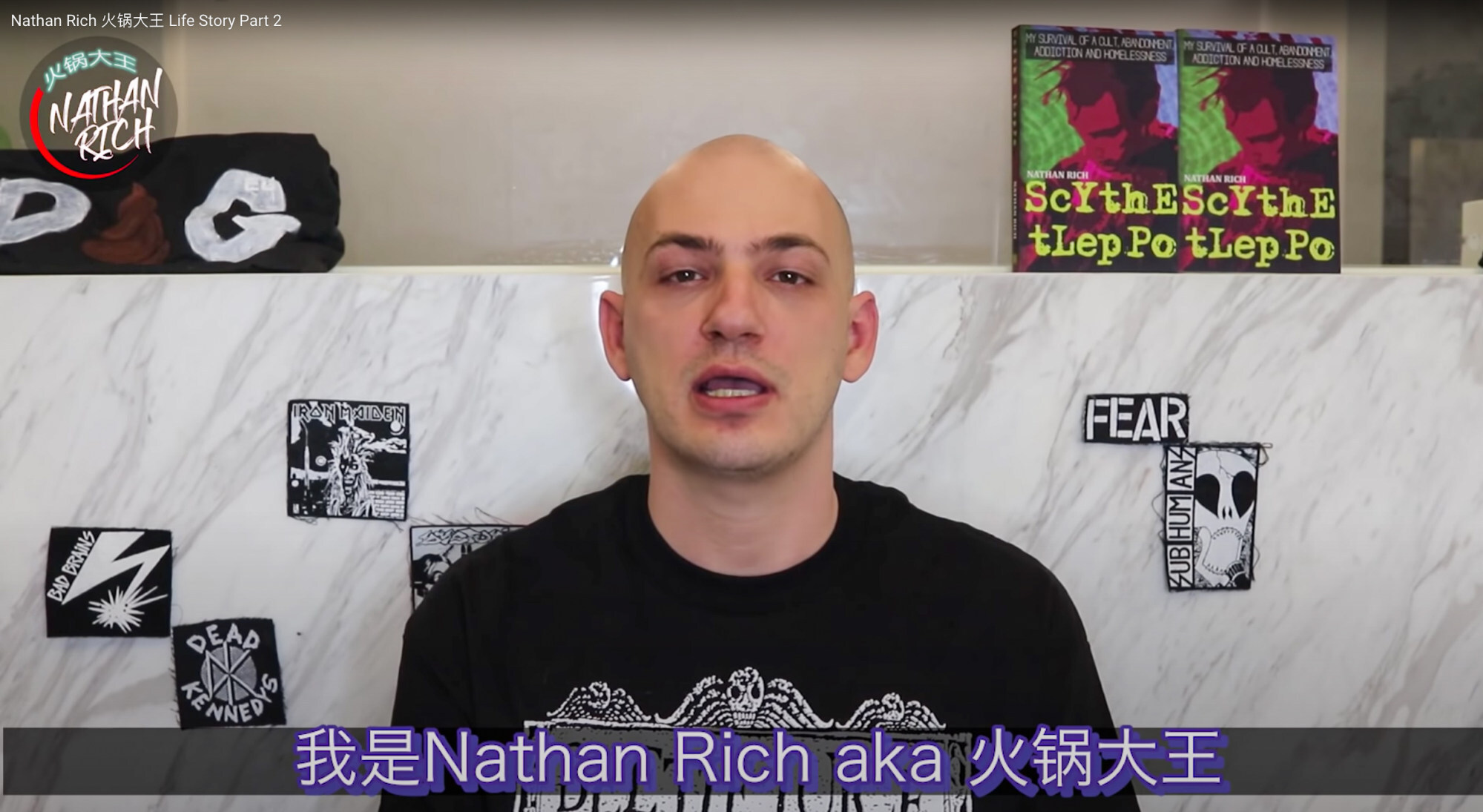
Why does the internet love Chinese-speaking foreigners? Yum cha kor may have the answer
- Gurdip Singh, a marine technician from Singapore who urged his fans in flawless Cantonese not to work so hard and to drink some tea, has become the latest in a long line of viral sensations
- China-watchers say the attention is partly due to growing national pride and that the focus is shifting from marvelling at someone’s language skills to whether they have a China-friendly message
The latest sensation to have taken over people’s news feeds is Gurdip Singh, 54, a Singapore-based marine technician who has won a legion of fans for his fluent Cantonese.
Known to his fans as yum cha kor, or “tea-drinking brother”, Singh gained almost 560,000 followers on video-sharing platform Bilibili this month for a clip in which – in fluent Cantonese – he advises people not to work so hard and drink more tea.
It is a sentiment that has clearly chimed with a new generation of Chinese who are embracing a trend known as tang ping (literally “lying flat”) to protest against what they see as a culture of gruelling work with little reward.
China-watchers put the popularity of the ‘Chinese-speaking-foreigner meme’ down to various reasons, from comic relief and curiosity about strangers to flattery and pride over the country’s rising influence, and even rising nationalism. At the same time, they say Singh’s sudden fame shows how the meme is evolving; no longer are people marvelling simply at the foreigner’s linguistic abilities – such as Singh’s mastery of Cantonese tones – they are now paying attention to the message itself, in Singh’s case his advice to “lie flat”.
Yum Cha Kor
In the video Singh, armed with a packet of tea, bellows at viewers: “No use working so hard, your boss won’t love you for it. Have some tea first, it’s three something [in the afternoon].”
And of course, it is all the more striking that someone who grew up in the Malaysian city of Kuantan should be delivering this social commentary on modern China in a dialect famed for being difficult for foreigners to pick up.
Positive energy: the darker side of China’s social media catchphrase
“These are very good chances and I believe I am so lucky and I cannot let go of this opportunity,” he said.
Singh said growing up he had many friends who spoke Cantonese, which was how he learned its vocabulary and tones. Encouraged by his nephew he began recording videos of himself and sending them to close friends and family on WhatsApp and things grew from there.
Now he is getting used to being recognised in public, acknowledging that his encouragements to “drink tea and relax” have got people “excited”.
“Chinese people see me on the streets and say, ‘Are you Yum Cha Kor?’ Then they ask to take a picture and video with me.
“I think it is because of the way I use an angry tone to say nice words. That’s why after the video, people say ‘he looks very fierce but the content is very nice’.”
But Luwei Rose Luqiu, an assistant professor at Hong Kong Baptist University’s School of Communication, said it was likely Singh’s video went viral “more because of the content than the language”.
“With young Chinese being extremely dissatisfied with 996, the [idea of an] afternoon tea break will easily resonate with them and their dissatisfaction with their state of life,” Luqiu said.

More than linguistics
One of the first foreigners to have found fame on the back of their Chinese language abilities was Canadian comedian Mark Rowswell, more commonly known by his Chinese stage name Dashan, or “Big Mountain”.
One of the most recognisable foreigners in China, Rowswell’s Chinese skills are so polished he has appeared four times on one of China’s biggest television shows, the Spring Festival New Year’s Eve Gala broadcast by the state-run television channel CCTV.
Appell said one reason foreigners speaking Chinese generated such interest was the perception among many Chinese that “learning the Chinese language is a sign of goodwill”.
“If any foreigner spends 10,000 hours learning Chinese, they are probably friendly to Chinese culture, and people view what they say as generally positive,” said Appell, popularly known in China as “Ai Jie Xi” (a transliteration of his English name).
Appell, who performs regularly on television, radio, and the internet speaking fluent Mandarin, said he uses comedy to bridge cultural divides between China and the West, adding that the Chinese are “very kind with their online comments towards non-Chinese speaking Chinese”.
Hong Kong Baptist University’s Luqiu, a former television journalist, said the fascination with foreigners who speak Chinese had evolved over the years.
Singapore’s Lee Hsien Loong a social media hero in China for Hong Kong protest comments
Citing Dashan, Luqiu said that in the past, a foreigner who could speak Chinese well had a good chance of achieving popularity.
“What people were interested in [back then] was his language ability, not his point of view,” Luqiu said, adding that as China’s population was largely of one ethnicity – Han Chinese – that it was natural to have a curiosity about other races and ethnicities.
Another reason, said Luqiu, was nationalism, as foreigners speaking Chinese evoked a sense of pride in many Chinese.
But the Chinese-speaking foreigners and would-be internet influencers of today needed to go the extra mile if they wanted to attract Chinese viewers, Luqiu said, noting that many bloggers and vloggers had changed from talking about their daily lives to talking about their observations, and even “praise”, of China.
Luqiu said this change was to “adapt to the needs of Chinese viewers” but had also been accentuated by the Chinese state media, which often conducts interviews with foreigners who speak Chinese.
The state media’s goal in doing so was partly to convey the message that China had become stronger and that this was why more foreigners wanted to learn Chinese, Luqiu said.

Hotpot King
However, he takes issue with those who label him as “pro-China”, saying that he is no more pro-China than he is pro-US or pro-Cambodia, but “it just so happens that the Western media and mindset about Cambodia is more balanced and calm than it is about China”.
Jerry Kowal, a New Yorker with over five million followers on Bilibili, has become famous by offering Chinese viewers a glimpse into American life and society, while at the same time offering a foreigner’s perspective on Chinese society.
In recent months, while based in New York, Kowal has posted videos on the impact of the pandemic on America, including the inadequate supply of personal protective equipment, and the Black Lives Matter protests.
Last August, Kowal, 28, who is more commonly known in China as Guo Jie Rui (a transliteration of his English name) and who speaks Mandarin with a discernible Western accent, was said to be among the 10 most popular influencers on the Chinese internet.
Kecheng Fang, an assistant professor at the Chinese University of Hong Kong’s School of Journalism and Communication, said that Chinese in past years had been amazed when foreigners, especially white people, were interested in learning the Chinese language and culture.
“It was from a perspective of humbleness and even from an inferior position,” Fang said, pointing out that now, the sentiment was that foreigners “learn the language because they don’t want to miss the opportunity of doing business and working with us”.
“Now, it is from a perspective of confidence, even overconfidence,” Fang said, adding: “Many netizens just want to look for confirmation about how good China is. Those who express criticisms are regarded as hostile foreign forces.”
Fang said that while Dashan had truly been promoting cross-cultural communication and mutual understanding, the influencers of today were mostly catering to nationalistic sentiments to get traffic.
“Their content may lead to bias and misunderstanding,” Fang said.
Stand-up comedian Appell said he had been concentrating on making videos recently as he has been stuck in the US during the last 16 months, unable to get a visa to return to China.
“On the bright side, as the US-China issue gets more contentious, I have actually found both sides more willing to watch my videos, as they don’t really fit neatly into the major media narratives, and are funny.
“People seem more willing to engage because of these reasons. Still, I am hoping things get better soon,” Appell added.


